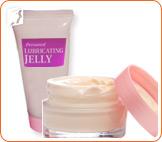While perimenopause and menopause are natural transitions in a woman's life, many women experience a myriad of unpleasant symptoms associated with the change. While most of these symptoms are uncomfortable, some of them can negatively impact your relationships, including loss of libido. Luckily, there are ways to manage this symptom. Read on to discover more about a loss of libido after menopause.
Menopause and a Loss of Libido
Even though there are plenty of treatment options available for treating loss of libido, it is integral to understand the causes of a lower sex drive. Due to hormonal imbalance during menopause, your libido can significantly decrease.

Progesterone, testosterone, and estrogen play separate and important roles in relation to sexual desires and sexual health. Estrogen leads to sensitivity, testosterone lubricates the vaginal walls, and progesterone maintains libido levels. Many factors can lead to a loss of libido after menopause, including:
Vaginal dryness. A common problem during and after menopause, vaginal dryness can lead to painful intercourse.
Fatigue. Dealing with all the symptoms of menopause can leave a woman irritable and extremely tired, further contributing to a loss of libido.
- Mood swings. This, coupled with feelings of depression, mean your emotions can fluctuate at any time, lowering sex drive.
Treatments for Loss of Libido after Menopause
Each case is different but by consulting your doctor, there are ways your a loss of libido after menopause can be addressed. Here are some things that may help:

Foods. A healthy diet is key and foods that include: zinc, protein, soy, and magnesium are recommended for helping a loss of libido after menopause.
Exercise. 30 minutes a day of physical activity is important for a healthy body and balanced hormone levels. Routines involving stretching, kegel exercises, yoga, and aerobics are perfect for this.
Lubricants. Using lubricant can go a long way in making sex more pleasurable for both you and your partner, since it decreases pain during intercourse.
Hormone creams. Cures for hormonal imbalance include pills and injections, but creams allow you to apply treatment directly to the area and aid sensitivity.
By following these methods, it is possible to treat a loss of libido after menopause. It is important to follow such methods as a first course of action before considering more intensive treatment options, such as hormone replacement therapy (HRT).
Sources
- Channon, L.D. and Ballinger S.E. "Some Aspects of Sexuality and Vaginal Symptoms during Menopause and their Relation to Anxiety and Depression." British Journal of Medical Psychology. June 1986. 59(2): 173-80.
- Sarell, Philip, M.D. "Psychosexual effects of menopause:Role of androgens." American Journal of Obstetrics & Gynecology. March 1999. 180: 3S-II.
- Studd, John. "Loss of Libido and Menopause." The Management of Menopause. Annual Review 1998. Partenon Publishing.



